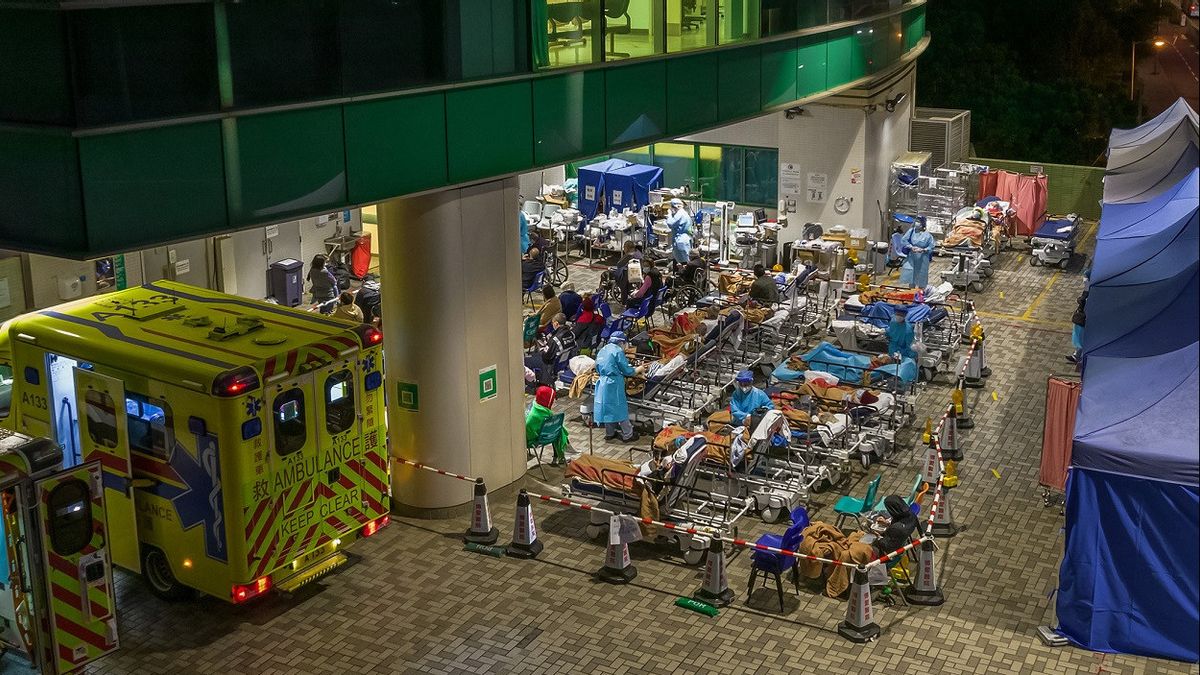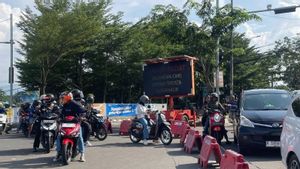JAKARTA - Yee, one of the nurses in Hong Kong's front line against COVID-19, had to be willing to be a patient who experienced rejection from the hospital, after the isolation wards and corridors were full of COVID-19 patients.
At home, the 25-year-old woman spread the virus to her father, and fears that her mother and brother will also catch it. Rules say he must be sent to a quarantine facility, but no one has contacted him for the past seven days to make arrangements.
Infected with COVID-19, Yee developed mild symptoms and took time off from work at the overwhelmed Kwong Wah hospital due to the surge in COVID-19 infection patients.
The 40-bed isolation ward now accommodates 60, some patients are treated in the corridor, and patients from the general ward who were treated for non-COVID reasons were later found to be positive and have infected other patients and nurses, who were also discharged.
"You keep adding beds, but not human resources," said Yee, who declined to give her last name, fearing the impact on the workplace.
"My colleagues are overloaded, with one nurse treating up to a dozen patients," he continued.
Nurses and doctors at other hospitals said the situation was similar across Hong Kong's health system, pointing to the limits of the government's "dynamic COVID-19" strategy, as thousands of new cases are discovered every day. Daily infections have jumped 70 times since early February.
In some hospitals, bedridden parents and children were seen left for hours in parking lots, waiting in the cold and rainy weather, in a sight that shocked residents and much of the global medical community.
Kwong Wah Hospital told Reuters in a statement it was using "every reasonable space" to accommodate patients, while infected staff would be sent to "appropriate" isolation facilities.
The city's Hospital Authority said it was facing tremendous pressure and had implemented a new triage policy, under which priority would be given to elderly patients and children in serious conditions. The government did not respond to requests for comment in this regard.
Like mainland China, Hong Kong aims to eradicate any outbreak at all costs, still officially targeting all infections and close contacts for mandatory testing, treatment and isolation.
Yee said the goal was 'impossible'. Transmission can't even be prevented inside hospitals, he said. A total of 837 medical staff were infected as of Tuesday, authorities said.
"This may seem counterintuitive, but in the COVID pandemic the last place we want people to be infectious is in a hospital, unless they really need treatment," said David Owens, co-founder of the OT&P clinic.
"We are already seeing a sharp increase in illness and isolation of health workers. It seems inconceivable that the health system could continue for so long without a change in strategy." Most patients have mild symptoms, doctors say.
Meanwhile, the Hong Kong Government has started adjusting its hospitalization and isolation policies based on severity, but is keeping capacity at maximum levels and thousands of people are still flocking to hospitals, fearing they could spread the virus to families.
It is common for small flats in densely populated Hong Kong to accommodate three generations of the same family, and many seniors still unvaccinated, becoming content after living in a largely COVID-free environment in 2020-2021.
"This is a huge problem," said David Chan, who heads the Hospital Authority Employees Alliance, referring to people with mild or no symptoms who show up in hospital.
"The government's message is, COVID is a very dangerous disease. So it is very difficult to blame the people," he said.
In addition, the Hong Kong Government plans to ease the burden by building new isolation facilities, turning hotel rooms back into quarantine rooms. More protective gear is also on the way, including potential labor assistance from mainland China.
However, many frontline health workers say such measures should be taken to anticipate an outbreak, rather than respond to it.
To note, over the past two years Hong Kong has been able to encourage vaccination of the elderly, increase quarantine capacity and devise plans to prioritize serious cases, keeping many people with mild symptoms away from hospitals.
"No plan. We just weren't ready. Doctors have struggling hearts, but we are getting tired," said Tony Ling, head of the Hong Kong Association of General Practitioners.
The English, Chinese, Japanese, Arabic, and French versions are automatically generated by the AI. So there may still be inaccuracies in translating, please always see Indonesian as our main language. (system supported by DigitalSiber.id)











